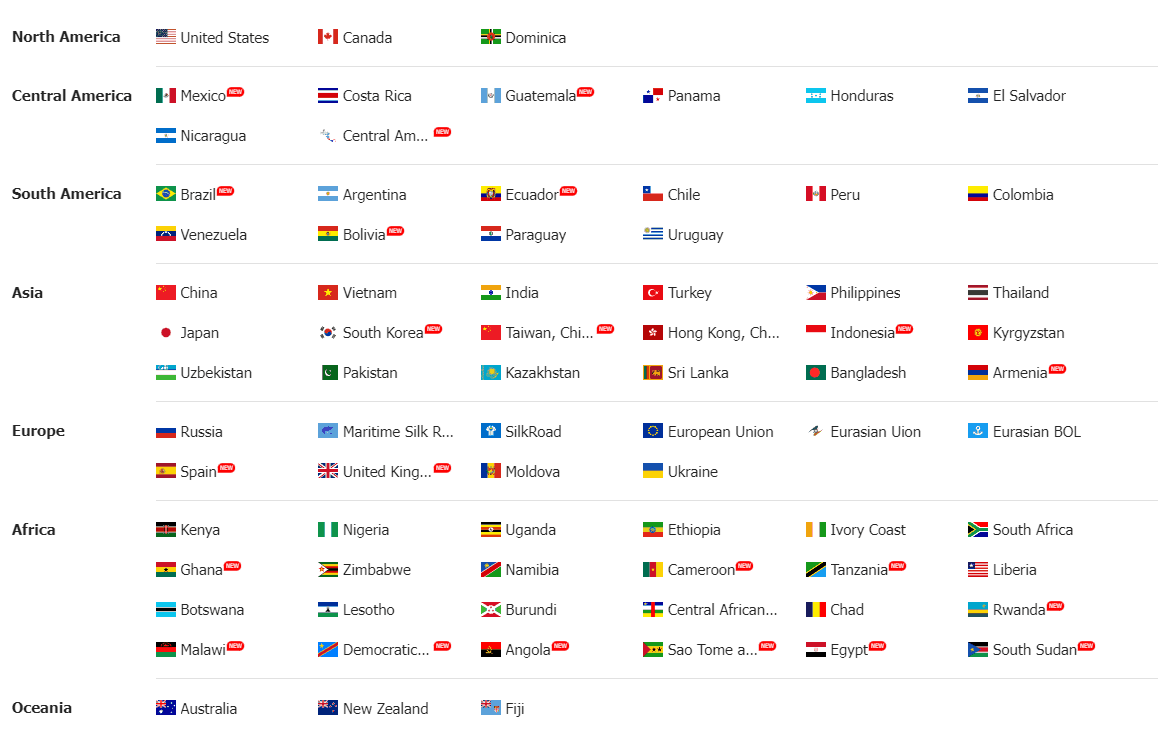 Trade Data
Trade Data
 15-08-2024
15-08-2024
Thailand, often referred to as the "Land of Smiles," is not only known for its rich culture and stunning landscapes but also for its significant role in global trade. As one of Southeast Asia's largest economies, Thailand's export sector plays a crucial role in driving its economic growth and maintaining its position in the global market.

Overview of Thailand's Export Sector
Thailand's export sector is diverse and robust, contributing substantially to the country's GDP. The country is a leading exporter of various goods, ranging from agricultural products and electronics to automobiles and textiles. Over the past few decades, Thailand has established itself as a major hub for manufacturing and export, leveraging its strategic location, well-developed infrastructure, and favorable trade policies.
Click here to check Thailand's export data
Key Export Commodities
Electronics and Electrical Appliances: Thailand is a key player in the global electronics market, particularly in the export of integrated circuits, computer parts, and electrical appliances. The country's electronics sector is driven by both domestic and foreign investment, with multinational companies establishing manufacturing bases in Thailand due to its skilled labor force and competitive costs.
Automobiles and Auto Parts: The automotive industry is another cornerstone of Thailand's export economy. Often referred to as the "Detroit of Asia," Thailand is a major exporter of automobiles, particularly pickup trucks, and auto parts. The country's automotive sector benefits from strong government support, skilled labor, and a comprehensive supply chain network.
Agricultural Products: Agriculture remains a vital sector in Thailand, with the country being one of the world's top exporters of rice, rubber, and sugar. Thai rice, in particular, is renowned globally for its high quality. The agricultural sector also includes the export of tropical fruits, seafood, and processed foods.
Textiles and Garments: Thailand's textile and garment industry has a long history and continues to be a significant contributor to its export earnings. The sector has evolved from producing basic garments to high-end fashion products, benefiting from the country's craftsmanship and innovation in design.
Click here to check Thailand's export data
Major Export Markets
Thailand's export markets are diverse, with key trading partners including the United States, China, Japan, and the European Union. The Association of Southeast Asian Nations (ASEAN) also plays a critical role as a regional market for Thai goods. In recent years, Thailand has sought to expand its export reach to emerging markets in Africa, the Middle East, and South Asia, recognizing the potential for growth in these regions.
Click here to check Thailand's export data
Recent Trends and Challenges
In recent years, Thailand's export sector has faced both opportunities and challenges. The COVID-19 pandemic disrupted global supply chains, leading to a temporary decline in export volumes. However, Thailand's export sector showed resilience, quickly rebounding as global demand recovered.
Click here to check Thailand's export data
The country has also been focusing on diversifying its export base, moving towards high-value and innovative products. The Thai government has been promoting the "Thailand 4.0" initiative, which aims to transform the country into a value-based economy driven by innovation, technology, and creativity.
However, Thailand's export sector also faces challenges such as global trade tensions, fluctuating commodity prices, and competition from neighboring countries. The rise of protectionist policies in key markets and the need for compliance with stringent environmental and labor standards are additional hurdles that Thai exporters must navigate.
Click here to check Thailand's export data
Future Outlook
The future of Thailand's export sector looks promising, with continued efforts to enhance competitiveness and adapt to changing global market conditions. The government's emphasis on trade agreements, digital transformation, and sustainable practices will likely play a key role in shaping the trajectory of Thailand's exports.
In conclusion, Thailand's export sector remains a vital engine of economic growth, with its diverse range of products and strategic trade relationships positioning the country as a significant player in global trade. As Thailand continues to innovate and adapt to the evolving global landscape, its export sector is poised to achieve further growth and success in the years to come.
Tendata iTrader compiles trade data from 218 countries and provides detailed information on over 130 million import-export enterprises worldwide.
With a daily influx of 10 billion trade records, Tendata efficiently delivers contact details for over 700 million top-level executives and decision-makers in the import-export industry through advanced filtering. This includes email addresses, phone numbers, social media profiles, and more. Additionally, we offer synchronized company profiles, product images, and website links, along with 19 types of visual reports. These tools assist foreign trade enterprises in precise market positioning and thorough market analysis, enabling you to quickly find the exact buyers and suppliers you need.
(>> Visit the Official Shanghai Tendata Website for More Details <<)

Category
Leave Message for Demo Request or Questions


 T-info
T-info T-discovery
T-discovery

 My
Tendata
My
Tendata Market Analysis
Market Analysis Customer
Development
Customer
Development Competitor
Monitoring
Competitor
Monitoring Customer Relationship
Customer Relationship




































































































































